Maintaining heart health is crucial for overall well-being, and one of the most effective ways to support cardiovascular health is through a nutritious heart healthy diet. That’s why, incorporating a variety of heart healthy foods into your meals can help lower the risk of heart disease, reduce inflammation, regulate blood pressure, and improve cholesterol levels. In this article, we’ll explore 20 heart healthy foods in detail, highlighting their nutritional benefits and providing practical tips for including them in your diet.
Fatty Fish
The first foods in our list of top 20 heart healthy foods are fatty fish such as salmon, mackerel, sardines, trout, and herring are rich sources of omega-3 fatty acids, particularly EPA (eicosapentaenoic acid) and DHA (docosahexaenoic acid). These essential fatty acids have been shown to reduce inflammation, lower triglyceride levels, improve blood vessel function, and decrease the risk of heart disease and stroke while promoting heart health.

In addition, fatty fish are excellent sources of high-quality protein, which is essential for muscle growth and repair. Fatty fish are also rich sources of vitamin D, which supports bone health and immune function. Aim to eat fatty fish at least twice a week as part of your regular diet. Grill, bake, or poach fish for a healthy and delicious main dish. Add canned salmon or tuna to salads, sandwiches, and wraps for a convenient and nutritious meal option.
Berries
Berries are some of the best heart healthy foods to include in your daily healthy diet. Berries such as strawberries, blueberries, raspberries, and blackberries are packed with antioxidants, including flavonoids, anthocyanins, and polyphenols, which help to protect cells from oxidative damage, reduce inflammation, regulate the blood pressure, improve the function of blood vessel, and protect against heart disease.

Furthermore, berries are high in soluble fiber, which helps lower cholesterol levels and regulate blood sugar. Berries also provide vitamins C and K, as well as potassium and manganese, which support heart health and overall well-being. Enjoy a variety of fresh or frozen berries as a snack, or add them to yogurt, oatmeal, smoothies, and salads for a delicious and nutritious boost. Freeze berries and blend them into homemade sorbets, popsicles, and fruit-based desserts for a refreshing treat.
Leafy Greens
Leafy greens such as spinach, kale, Swiss chard, collard greens, and arugula are nutrient powerhouses packed with vitamins, minerals, antioxidants, and dietary fiber. They are low in calories and high in nutrients, making them valuable allies in the fight against high cholesterol and heart disease. That’s why, leafy greens are undoubtedly amazing heart healthy foods that should not be ignored if you want to improve heart health.
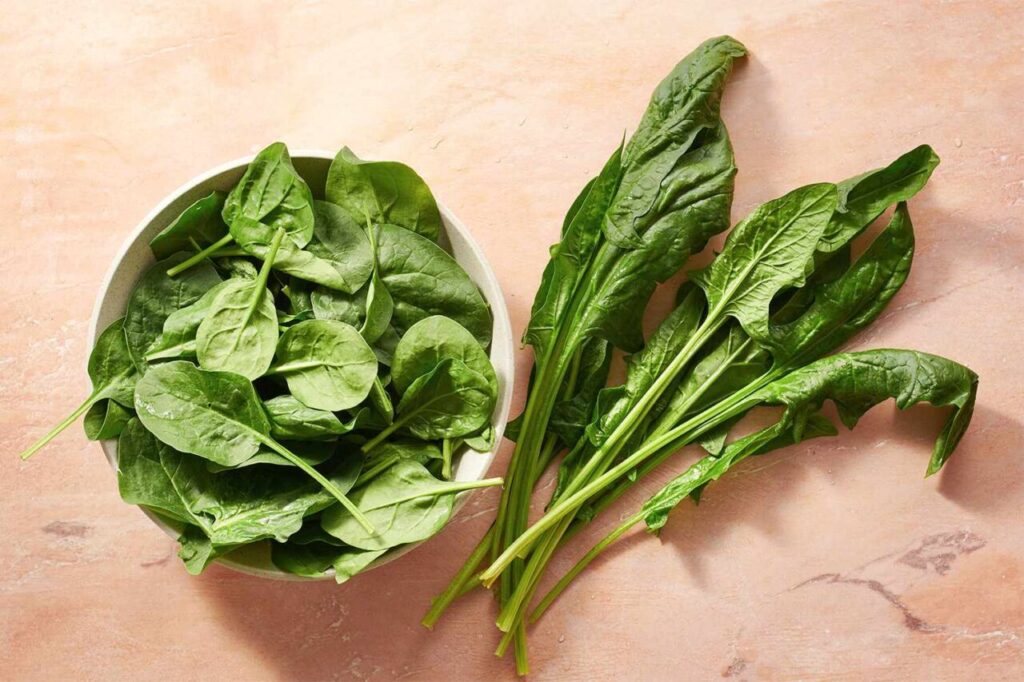
Leafy greens are high in soluble fiber, which helps lower LDL cholesterol levels and promote digestive health. Moreover, they contain antioxidants like vitamin C, vitamin K, and beta-carotene, which help protect cells from oxidative damage and reduce inflammation. Leafy greens are also rich in potassium, an essential mineral that helps regulate blood pressure and support heart health. Enjoy fresh leafy greens as a side dish or base for salads, wraps, and sandwiches. You can also leafy greens to soups, stews, stir-fries, omelets, and casseroles for a nutritious and heart-healthy boost.
Whole Grains
Whole grains such as oats, quinoa, brown rice, barley, bulgur, and farro are not only some of the healthiest carbohydrate sources but also amazing heart healthy foods as they are rich in fiber, vitamins, minerals, and antioxidants that help to nourish your heart and overall well-being. The soluble fiber in whole grains help lower LDL cholesterol levels, regulate blood sugar, and promote digestive health, making these grains essential components of a heart healthy diet.
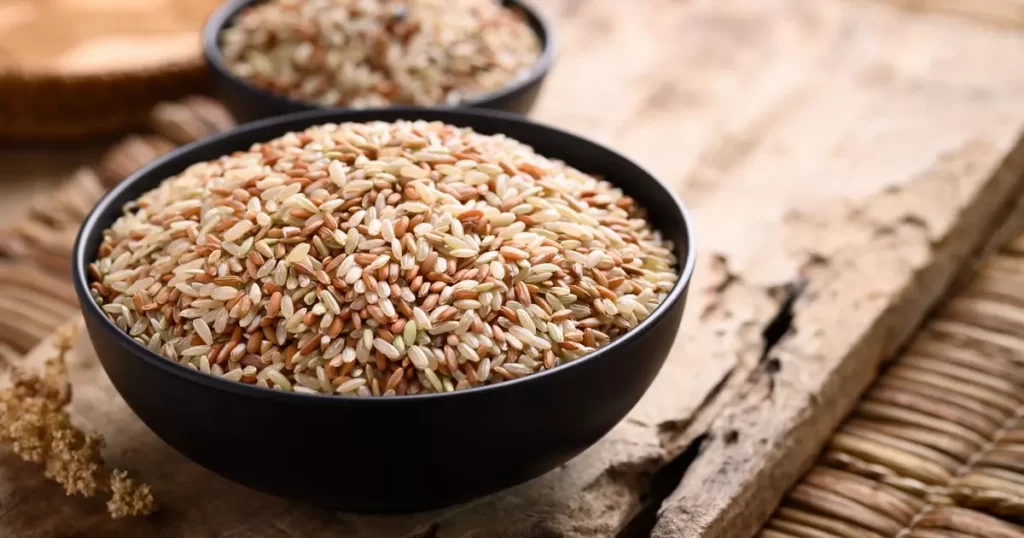
Additionally, whole grains provide vitamins B, E, and minerals like magnesium, selenium, and zinc, which support heart health and overall well-being. Whole grains also contain antioxidants like phenolic compounds and lignans, which help protect cells from oxidative damage and reduce inflammation. Choose whole grain options like oats, quinoa, and brown rice instead of refined grains like white rice and white bread. Incorporate whole grains into your meals as a base for salads, stir-fries, soups, and grain bowls, or enjoy them as side dishes or pilafs.
Avocados
Avocados are very rich sources of heart-healthy monounsaturated fats, particularly oleic acid, which help lower LDL cholesterol levels and reduce the risk of heart disease making it one of the greatest heart healthy foods. These amazing fruits also provide fiber, vitamins, minerals, and antioxidants that support cardiovascular health and overall well-being.
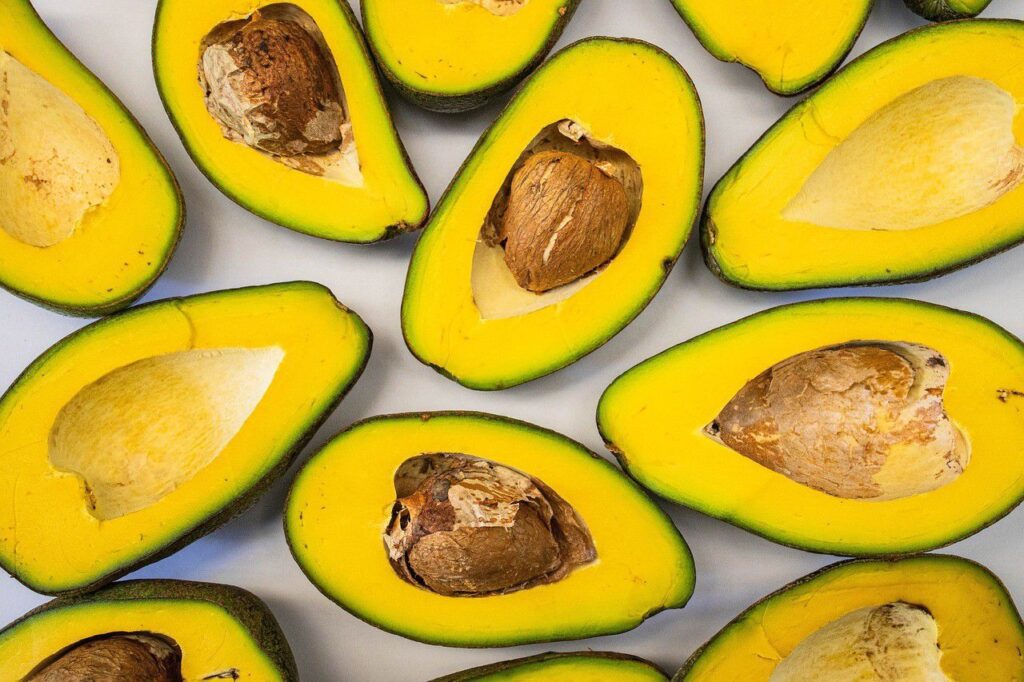
As we already know, avocados are also good sources of dietary fiber, which helps regulate blood sugar, promote digestive health, and support weight management. Furthermore, avocados provide vitamins C, E, K, and B vitamins, as well as potassium, magnesium, and folate, which support heart health and overall well-being. Enjoy sliced avocado on whole grain toast, salads, sandwiches, and wraps for a creamy and heart healthy addition to your meals or use mashed avocado as a substitute for mayonnaise or butter in recipes for dips, spreads, sauces, and dressings.
Nuts and Seeds
Nuts and seeds such as almonds, walnuts, pistachios, flaxseeds, chia seeds, and hemp seeds are rich sources of heart healthy fats, protein, fiber, vitamins, minerals, and antioxidants that support cardiovascular health and overall well-being. So, there is no question why they are some of the best heart healthy foods to add in your diet.
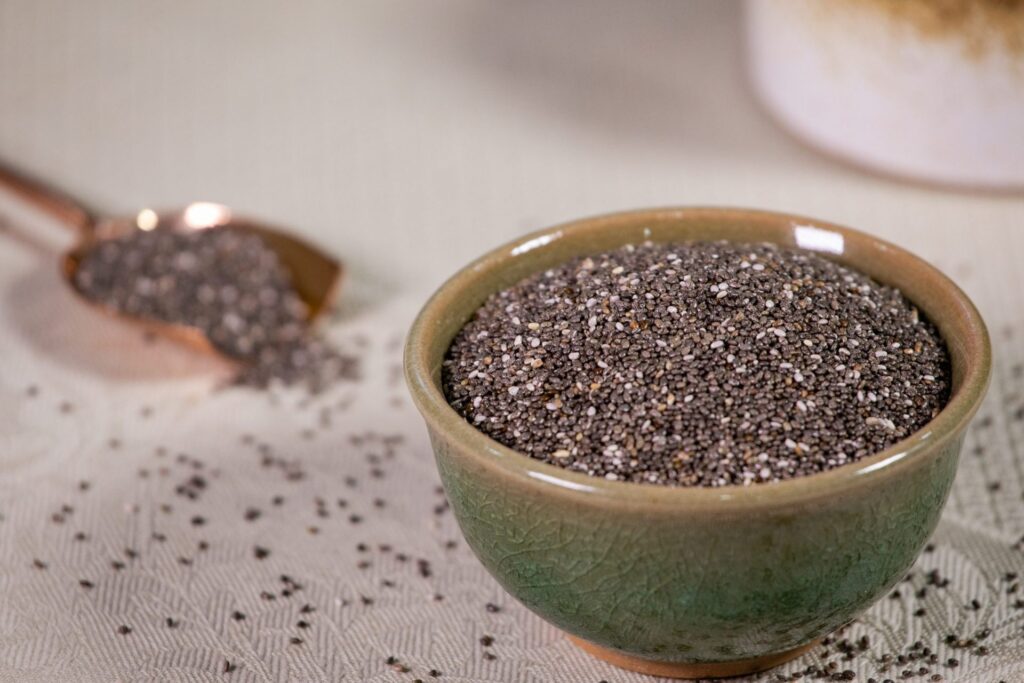
Nuts and seeds are high in monounsaturated and polyunsaturated fats, which help lower LDL cholesterol levels and reduce the risk of heart disease. Nuts and seeds also provide plant-based protein, which helps build and repair tissues and support muscle health. On top of that, they are rich in dietary fiber, which helps lower cholesterol levels, regulate blood sugar, and promote digestive health.
Enjoy a handful of mixed nuts and seeds as a snack or add them to yogurt, oatmeal, salads, and stir-fries for added flavor and nutrition. Use nut butters and seed butters as spreads for toast, sandwiches, and wraps, or incorporate them into smoothies, sauces, and baked goods.
Olive Oil
Olive oil is a staple of the Mediterranean diet and is renowned for its heart healthy benefits. It is rich in monounsaturated fats, particularly oleic acid, as well as antioxidants and anti-inflammatory compounds that support cardiovascular health and reduce the risk of heart disease.
Olive oil is high in monounsaturated fats, which help lower LDL cholesterol levels and reduce the risk of heart disease. In addition, olive oil contains polyphenols, tocopherols, and other antioxidants that help protect cells from oxidative damage and reduce inflammation.

Olive oil also contains oleocanthal and oleuropein, two compounds with anti-inflammatory properties that support heart health and overall well-being. Use extra virgin olive oil as your primary cooking oil for sautéing, roasting, and dressing salads, vegetables, and grains. Drizzle olive oil over cooked vegetables, pasta, and soups for added flavor and heart-healthy fats.
Legumes
Legumes such as beans, lentils, chickpeas, and peas are excellent sources of plant-based protein, fiber, vitamins, minerals, and antioxidants that support heart health and overall well-being. They help lower cholesterol levels, regulate blood sugar, and promote digestive health, making them valuable additions to our list of best heart healthy foods to include in a heart healthy diet.
Legumes are some of the best plant-based protein sources which helps build and repair tissues, support muscle health, and promote satiety. They are also high in soluble and insoluble fiber, which helps lower cholesterol levels, regulate blood sugar, and promote digestive health. On top of that, legumes provide vitamins B, E, and minerals like iron, magnesium, potassium, and zinc, which support heart health and overall well-being.

Incorporate cooked legumes into salads, soups, stews, chilis, and casseroles for added protein, fiber, and nutrition. You can also use legumes as a substitute for meat in recipes for burgers, tacos, chili, and pasta dishes to reduce saturated fat intake and increase plant-based protein consumption.
Garlic
Garlic is one of those heart healthy foods that is a culinary staple with powerful medicinal properties and has been used for centuries to improve heart health and overall well-being. In a nutshell, it contains sulfur compounds like allicin, diallyl disulfide, and s-allyl cysteine, as well as antioxidants and anti-inflammatory compounds that support cardiovascular health.
So, garlic contains sulfur compounds like allicin, which have been shown to lower blood pressure, reduce cholesterol levels, and improve the function of blood vessel. Additionally, it is rich in antioxidants like vitamin C, selenium, and quercetin, which help protect cells from oxidative damage and reduce inflammation. Garlic also contains compounds with anti-inflammatory properties that support heart health and overall well-being.

Add fresh or roasted garlic to soups, stews, stir-fries, sauces, and marinades for added flavor and heart healthy benefits. You can also enjoy garlic in its raw form by adding minced or crushed garlic to salad dressings, dips, spreads, and bruschetta for a flavorful and nutritious boost.
Tomatoes
Tomatoes are rich in antioxidants, including vitamin C, vitamin E, beta-carotene, and lycopene, which help protect cells from oxidative damage and reduce inflammation. They also provide fiber, vitamins, minerals, and water, making them pretty good hydrating heart healthy foods to include in your diet. Along with being rich in antioxidants, tomatoes provide dietary fiber, which helps lower cholesterol levels, regulate blood sugar, and promote digestive health.
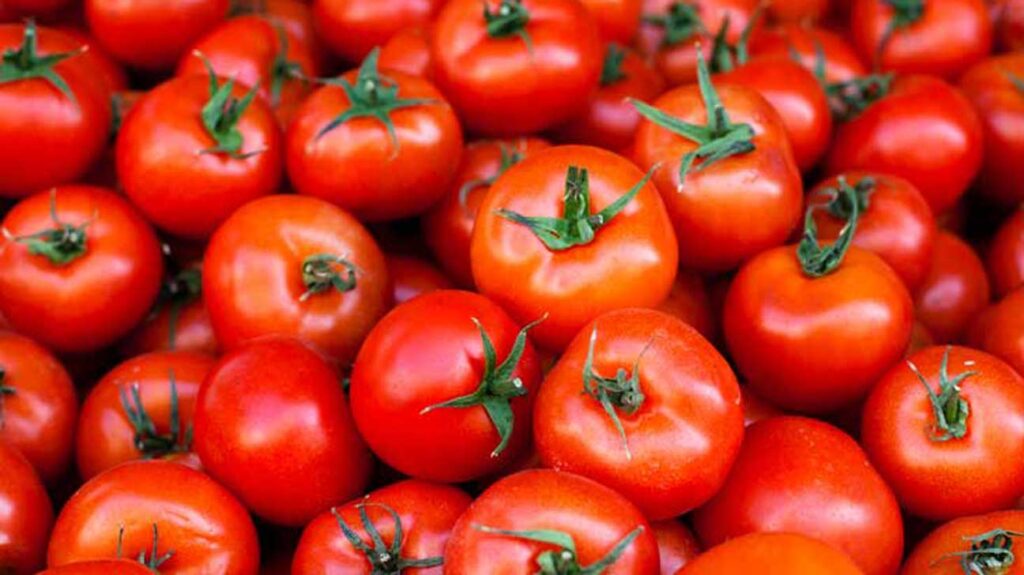
Tomatoes are also high in water content, which helps keep you hydrated and supports overall health and well-being. Enjoy fresh tomatoes in salads, sandwiches, wraps, and salsas in your heart healthy breakfasts or add them to soups, stews, sauces, and casseroles for added flavor and nutrition. Cooked tomatoes are a particularly rich source of lycopene, so incorporate them into your meals as tomato sauce, tomato paste, or roasted tomatoes for maximum healthy benefits to nourish your heart.
Dark Chocolate
Dark chocolate with a high cocoa content (70% or higher) is rich in antioxidants, including flavonoids, polyphenols, and catechins, which help protect cells from oxidative damage and reduce inflammation. It also contains fiber, minerals, and healthy fats, making it a delicious and nutritious treat for your heart. That’s why, it gets a place in our list of top heart healthy foods.

Dark chocolate contains monounsaturated fats, particularly oleic acid, which help lower LDL cholesterol levels and reduce the risk of heart disease. Moreover, as we all know, it also contains soluble fiber that helps to support digestive health, regulate blood sugar, lower the cholesterol levels and support weight management – all of which are associated with improving the heart health.
Choose dark chocolate with a cocoa content of 70% or higher to maximize antioxidant and nutritional benefits. Enjoy a small piece of dark chocolate as an occasional treat, or incorporate it into recipes for desserts, smoothies, and baked goods for added flavor and healthy fats.
Red Wine
Moderate consumption of red wine has been associated with a reduced risk of heart disease and stroke, and other cardiovascular conditions making it one of the best heart healthy foods and a popular component of the Mediterranean diet. Red wine is rich in antioxidants like resveratrol, flavonoids, and polyphenols, which help protect cells from oxidative damage and reduce inflammation.

Enjoying a glass of red wine in moderation can promote relaxation, stress reduction, and overall well-being. So, enjoy a glass of red wine with meals in moderation as part of a balanced and heart healthy diet. If you choose not to drink alcohol, you can still reap the healthy benefits of red wine by consuming grapes, grape juice, or grape seed extract, which also contain resveratrol and other antioxidants.
Oranges
Oranges are refreshing and nutritious heart healthy foods to add to your diet as they are rich sources of vitamin C, potassium, fiber, and antioxidants, which help support heart health, regulates the blood pressure, improve the function of blood vessel, and reduce the risk of heart disease. They also provide hydration and promote digestive health. Because oranges are high in vitamin C, a powerful antioxidant, they can help to protect cells from oxidative damage and reduce inflammation.
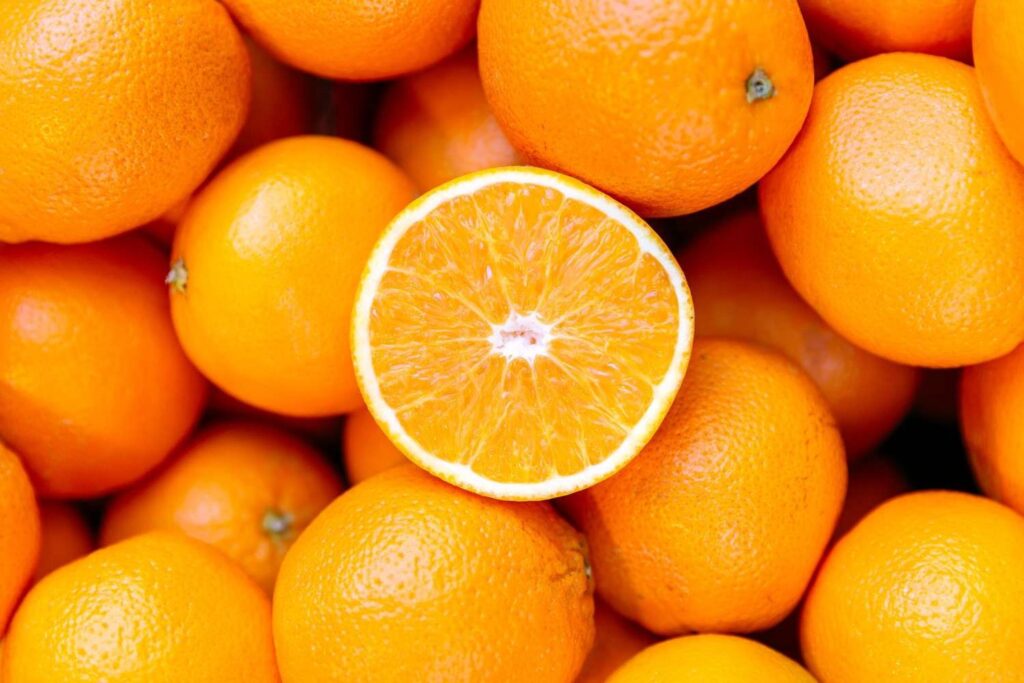
Furthermore, oranges provide potassium, an essential mineral that helps regulate blood pressure and support heart health. Oranges are a good source of dietary fiber too, which helps lower cholesterol levels, regulate blood sugar, and promote digestive health. Enjoy whole oranges as a snack or add them to salads, smoothies, and desserts for a burst of flavor and nutrition. Drink freshly squeezed orange juice in moderation, or opt for whole oranges to minimize added sugars and maximize fiber content.
Green Tea
Green tea is considered one of the healthiest beverages so it’s not surprise it is in our list of top heart healthy foods. It is rich in antioxidants, including catechins, flavonoids, and polyphenols, which help protect cells from oxidative damage and reduce inflammation. It also contains caffeine and L-theanine, which promote alertness, concentration, and relaxation, supporting overall cognitive function and well-being making it a popular beverage choice for nourishing your heart and overall well-being.

Regular consumption of green tea has been associated with a reduced risk of heart disease, stroke, and other cardiovascular conditions. Brew green tea leaves or bags in hot water for 3-5 minutes to extract maximum flavor and nutritional benefits. Enjoy green tea hot or iced, plain or flavored, with or without added sweeteners, depending on your taste preferences and dietary needs.
Flaxseeds
Flaxseeds are amazing heart healthy foods as they are rich sources of alpha-linolenic acid (ALA), a type of omega-3 fatty acid, as well as fiber, protein, vitamins, minerals, and antioxidants all of which enhance heart health and overall well-being. So, flaxseeds are high in ALA, a type of omega-3 fatty acid, which helps lower LDL cholesterol levels and reduce the risk of heart disease. On top of that, they are rich in soluble and insoluble fiber, which helps regulate blood sugar, promote digestive health, and support weight management.
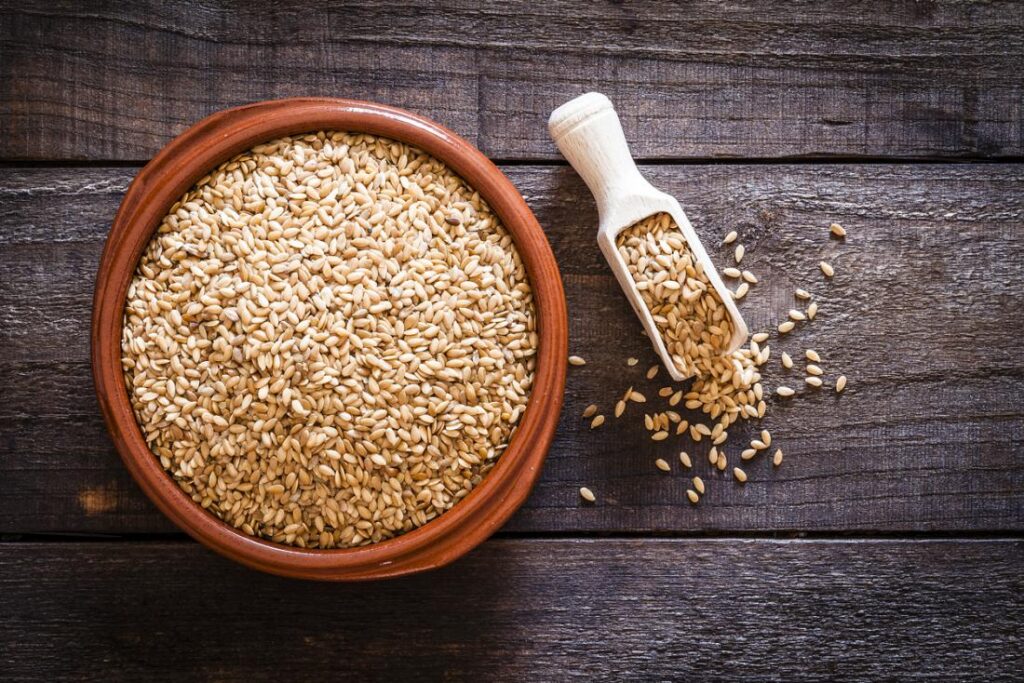
Moreover, they provide vitamins B, E, and minerals like magnesium, manganese, and selenium, which also support heart health and overall well-being. Add ground flaxseeds to oatmeal, yogurt, smoothies, and baked goods for a nutty flavor and nutritional boost or use flaxseed oil as a salad dressing or drizzle it over cooked vegetables, pasta, and grains for added flavor and healthy fats.
Broccoli
Broccoli is a very popular cruciferous vegetable among fitness enthusiasts because of its high nutritious value. It’s rich in vitamins, minerals, antioxidants, and fiber, which help to nourish your heart, lower blood pressure, improve blood vessel function, and reduce the risk of chronic heart disease. It also contains sulforaphane, a compound with anti-inflammatory and anti-cancer properties, making it a must in our list of top heart healthy foods.
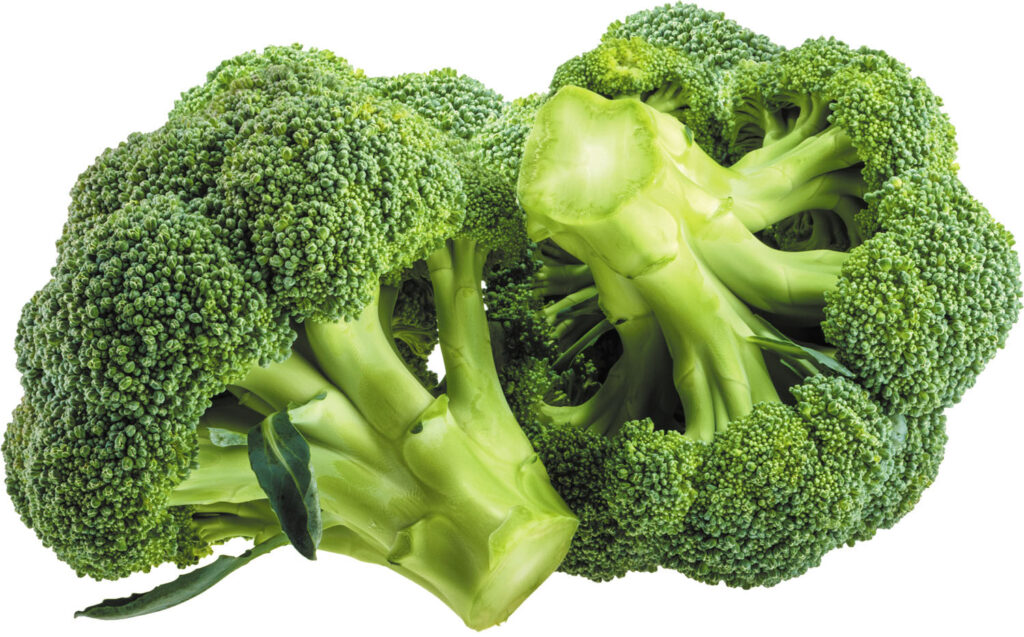
Broccoli provides vitamins C, K, and A, as well as potassium, magnesium, and calcium, which help your heart to stay strong and promote overall well-being. Furthermore, this vegetable is rich in antioxidants like vitamin C, beta-carotene, and sulforaphane, which help protect cells from oxidative damage and reduce inflammation. Broccoli is high in soluble and insoluble fiber too, which helps lower cholesterol levels, regulate blood sugar, and promote digestive health.
Steam, roast, or sauté broccoli for a nutritious and delicious side dish or add it to salads, soups, stir-fries, and casseroles for added flavor and nutrition or enjoy raw broccoli florets as a crunchy and nutritious snack, or dip them in hummus, guacamole, or Greek yogurt for added flavor and protein.
Beets
Beets are nutrient-rich root vegetables which are some of the best heart healthy foods because they are high in vitamins, minerals, antioxidants, and dietary fiber, which support heart health, lower blood pressure, improve blood vessel function, and reduce the risk of heart disease.
Additionally, beets are rich in nitrates, which help improve blood flow, lower blood pressure, and enhance exercise performance, supporting heart health and overall well-being. They also contain antioxidants like betalains, betaine, and vitamin C, which help protect cells from oxidative damage and reduce inflammation.
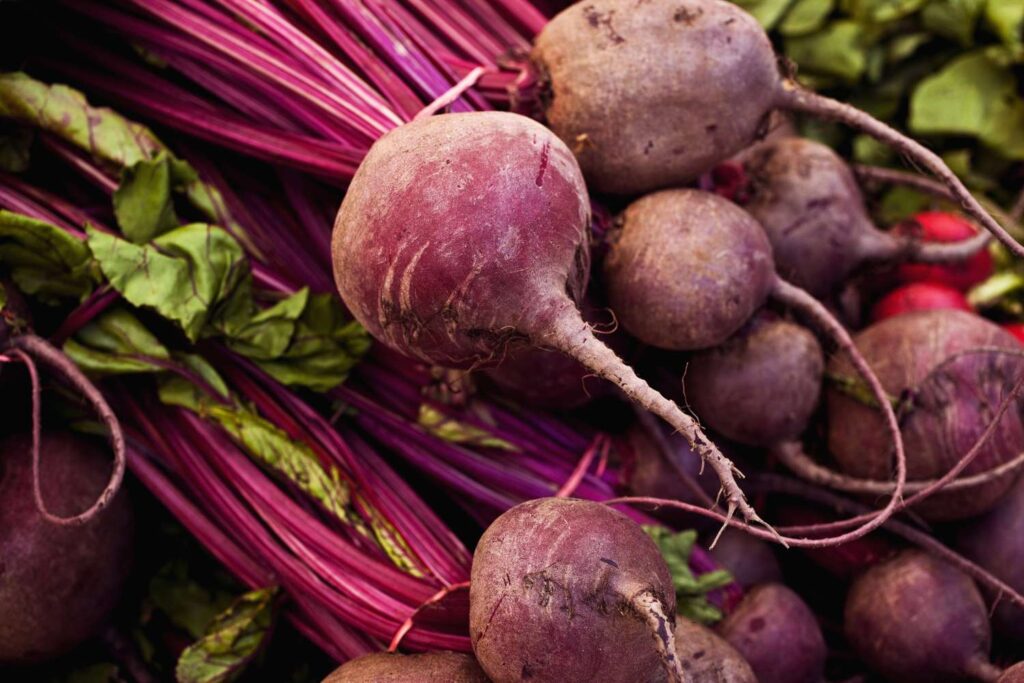
On top of that, beets provide dietary fiber, which helps lower cholesterol levels, regulate blood sugar, and promote digestive health. So, roast, steam, or boil beets for a nutritious and delicious side dish or add them to salads, sandwiches, wraps, and grain bowls for added flavor and nutrition. Try drinking beet juice before exercise to boost endurance and performance, or enjoy it as a refreshing and hydrating beverage post-workout.
Red Bell Peppers
Just like most other foods in this heart healthy foods list, red bell peppers are also rich sources of vitamins, minerals, antioxidants, and fiber, which help to improve heart health, lower blood pressure, improve the function of blood vessel, and reduce the risk of heart disease. Red bell peppers provide vitamins C, A, and B6, as well as potassium, magnesium, and folate, which support heart health and overall well-being.

Moreover, they are rich in antioxidants like vitamin C, beta-carotene, and lycopene, which help protect cells from oxidative damage and reduce inflammation. Red bell peppers also provide dietary fiber, which helps lower cholesterol levels, regulate blood sugar, and promote digestive health. Enjoy raw red bell peppers as a crunchy and nutritious snack, or add them to salads, sandwiches, wraps, and crudité platters for added flavor and nutrition. You can also roast or grill red bell peppers for a sweet and smoky flavor, then use them in soups, sauces, dips, and spreads for added depth and richness.
Turmeric
Turmeric is a bright yellow spice that’s rich in curcumin, a compound with powerful anti-inflammatory and antioxidant properties that help protect cells from oxidative damage and reduce inflammation. Regular consumption of turmeric has been associated with a reduced risk of heart disease, improved blood vessel function, low chances of blood pressure, stroke, and other cardiovascular conditions. In addition, turmeric provides manganese, iron, and vitamins B6 and C, which also help to nourish your heart and overall well-being.
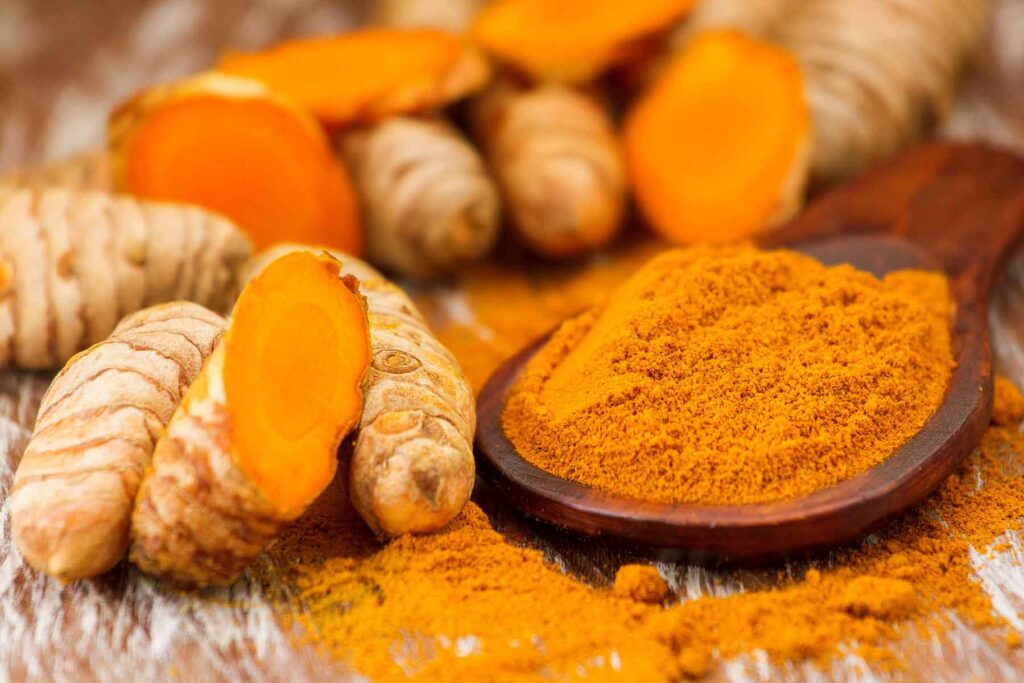
Add ground turmeric to curries, stews, soups, marinades, and rice dishes for a warm and earthy flavor and heart-healthy benefits. Enjoy turmeric tea by steeping fresh or dried turmeric root in hot water, then adding lemon, honey, and spices like ginger and cinnamon for added flavor and nutrition.
Beans
Beans such as black beans, kidney beans, pinto beans, chickpeas, and lentils are nutrient-rich legumes that are high in protein, fiber, vitamins, minerals, and antioxidants, which support heart health, lower blood pressure, improve blood vessel function, and reduce the risk of heart disease. They provide plant-based protein, dietary fiber, and essential nutrients that support overall well-being. It would be no less than a crime not to add the beans in our list of top heart healthy foods.
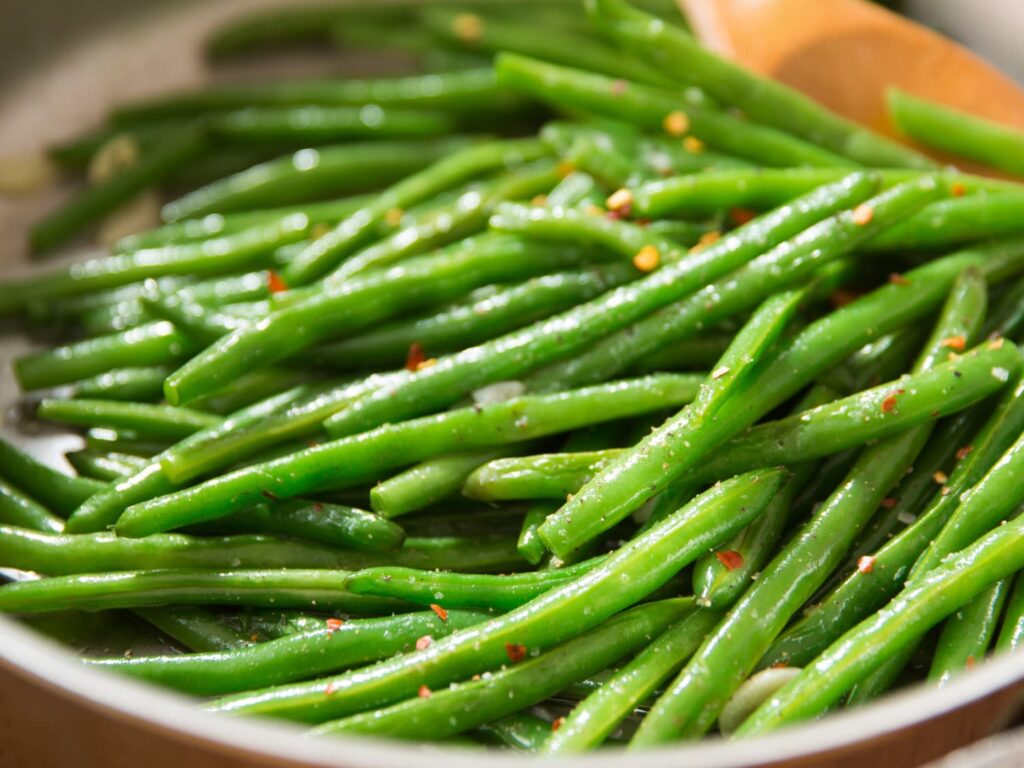
The plant-based protein in beans helps build and repair tissues, support muscle health, and promote satiety. Also, the soluble and insoluble fiber present in beans helps lower cholesterol levels, regulate blood sugar, and promote digestive health. Last but not least, beans provide vitamins B, E, and minerals like iron, magnesium, potassium, and zinc, which support heart health and overall well-being.
Incorporate cooked beans into salads, soups, stews, chilis, and casseroles for added protein, fiber, and nutrition. You can also use beans as a substitute for red meat in recipes for burgers, tacos, chili, and pasta dishes to reduce saturated fat intake and increase plant-based protein consumption.
Conclusion
Incorporating a variety of heart healthy foods into your diet is essential for maintaining cardiovascular health and reducing the risk of heart disease, stroke, and other cardiovascular conditions. By focusing on nutrient-rich foods like fatty fish, berries, leafy greens, whole grains, avocados, nuts, seeds, olive oil, legumes, garlic, tomatoes, dark chocolate, red wine, oranges, green tea, flaxseeds, broccoli, beets, red bell peppers, turmeric, and beans, you can nourish your heart and support overall well-being. Whether you prefer savory or sweet flavors, there are plenty of delicious and nutritious options to choose from that will benefit your heart and enhance your health. Experiment with different ingredients, flavors, and recipes to find your favorite heart-healthy foods and enjoy a lifetime of cardiovascular wellness. So, that’s our list of top 20 heart healthy foods to nourish your health. Hopefully, you found this article helpful enough. If you really did then let us know your valuable thoughts in the comment section. Thanks for visiting and appreciating our work.
